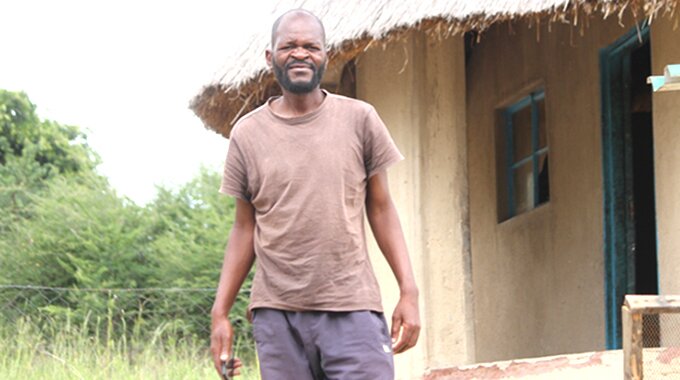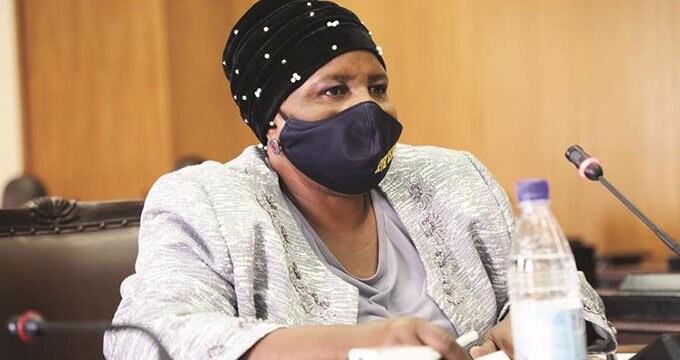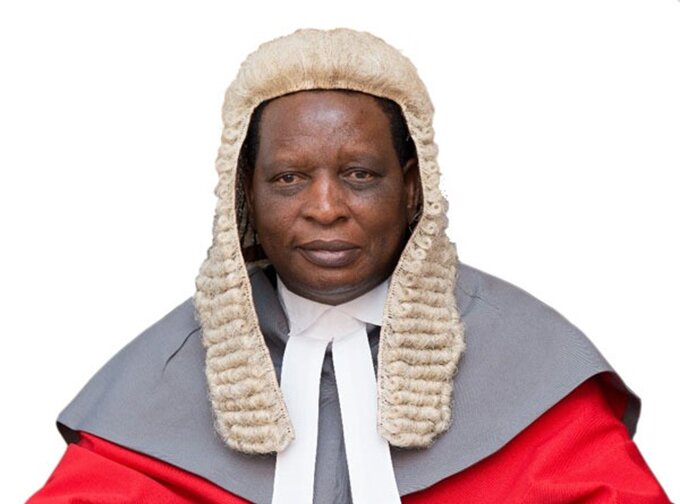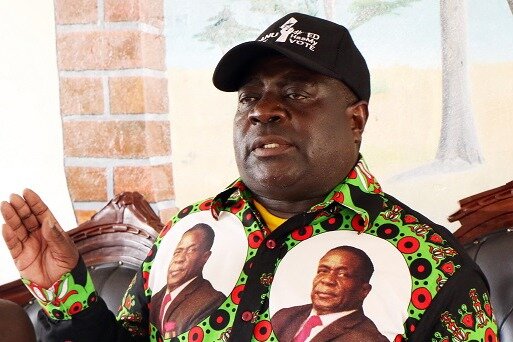Farirai Machivenyika Senior Reporter
The economy is poised to grow considerably on the back of the success of policies that have fixed the economic fundamentals such as the Transitional Stabilisation Programme (TSP), the foreign currency auction system and stimulus packages for manufacturing, agriculture and tourism, President Mnangagwa said yesterday.
Giving a State of the Nation Address and opening the Third Session of the Ninth Parliament, the President stressed the need for unified action to accelerate development.
Government was keen to improve the working conditions of teachers, health workers and the public service in general as part of its overall policy of improving the lives of all citizens.
This year the opening speech, where the President explains why Parliament was summoned, and his formal outline of the State of the Nation, was done virtually in keeping with measures aimed at preventing the spread of Covid-19.
The President delivered his address from State House with only a minority of legislators in the chamber of the National Assembly and the rest following the proceedings on television or online platforms.
Advertisement
In his speech, President Mnangagwa set out the legislative agenda for the coming session with the stress on entrenching ongoing political and economic reforms and constitutionalism.
At least 37 Bills to amend existing laws, replace laws or make new laws for new circumstances, are expected to be brought before Parliament in the next 12 months.
President Mnangagwa said Government was committed to improving the welfare of civil servants among other initiatives aimed at improving the general livelihoods of people.
Outlining the present economic position after the first two years of fixing inherited indiscipline and coping with Covid-19, the President said: “Our Transitional Stabilisation Programme has delivered and there are causes for optimism. My Government is indeed encouraged by the current economic stability, evident since the launch of the foreign exchange auction system in June. The system has resulted in the stability of the foreign exchange rate as well as the prices of our goods and services.
“To mitigate the negative impact of the Covid-19 pandemic, Government availed an $18 billion stimulus package for the productive sectors, vulnerable social groups, and provision of public services, especially health, water and sanitation.”
The President said Government has begun the phased re-opening of the economy including schools but urged Zimbabweans to continue observing World Health Organisation guidelines aimed at combating the spread of Covid-19.
“In spite of the global and local economic impact of the Covid-19 pandemic, our exports increased by 4,9 percent to US$1,96 billion during the first half of 2020, from US$1,86 billion in 2019, for the comparative period. Meanwhile, imports declined by 5,9 percent, from US$1,96 billion to US$1,84 billion, during the 2019 and 2020 first half comparative periods, respectively.
“In addition, foreign currency receipts have performed better than anticipated, appreciating by 18 percent as at end of August 2020. Coupled with Diaspora remittances, these should continue to anchor and drive further stability,” he said.
The rise in exports and other foreign currency receipts coupled with the decrease in imports means that Zimbabwe is now running a positive current account balance with exports exceeding imports even before other foreign exchange payments are made. It is this positive change which backs the stability of the auction system.
Zimbabwean industrialists are making new products and boosting quality as well as quantity, with the President noting that the increased certification of new products by the Standards Association of Zimbabwe was another positive sign on the performance of country’s industry.
Advertisement
Government expects the trend of the positive trade balance to be sustained through increased productivity and exports, across all sectors of the economy.
President Mnangagwa said the attainment of Vision 2030 was premised on a performance-oriented and results-driven culture. “Thus, the reform of State enterprises and parastatals remains a priority as we revisit the strategic importance of these entities in line with Vision 2030. Strong structural and administrative frameworks will be enforced; together with good corporate governance, accountability, transparency, productivity and profitability in all State-owned entities,” he said.
Government will soon launch the First Five-Year National Development Strategy: 2021-2025, which builds on the successes of the TSP and will guide the formulation of the 2021 national Budget.
He reiterated that the fight against corruption was a major Government priority as corruption was a threat to sustainable economic development and growth.
“Therefore, let us all strengthen our determination to rid Zimbabwe of corruption. Nobody is above the law. Justice shall be pursued,” he added.
The President said the historic signing of the Global Compensation Agreement with white former commercial farmers reaffirmed the irreversibility of land reform but was also evidence of Government’s commitment to the entrenchment of constitutionalism, the rule of law and respect for property rights.
Zimbabweans were called upon to use their land productively, especially in the forthcoming season where normal-to-above normal rainfall is expected.
“I commend communities throughout the country for the land preparations made under the Presidential Climate Proofed Agriculture Programme, Pfumvudza-Intwasa. The Presidential Input Support Scheme will see over 1,8 million households being supported with free inputs to grow maize and traditional grains while cotton farmers will also continue to receive support.
“Input distribution under this facility has commenced in earnest,” said President Mnangagwa.
Government has also resolved to roll-out the Presidential Horticulture Scheme to boost rural communities’ sources of income while the accelerated resuscitation and development of irrigation schemes and construction of dams in all provinces would help climate-proof agriculture against the adverse effects of climate change.
Advertisement
On energy, the President said projects being implemented by Government and private players would see Zimbabwe becoming a net exporter of electricity by 2025.
Fuel supplies had now stabilised owing to a raft of policies adopted by Government.
Expanding the road network and upgrading and repairing existing highways and roads using local resources and contractors had been so successful that the model was now the policy.
“Road construction, modernisation and rehabilitation are ongoing throughout all provinces of our country. These will enhance connectivity and facilitate greater economic trade within our country as well as the region as a whole. The use of local financial resources, skills and companies is yielding impressive results and the model will be vigorously pursued going forward, in other infrastructure projects,” he said.
On social protection interventions, President Mnangagwa said over 700 000 households are receiving grain each month while others are benefiting from the cash-for-grain programme under the Urban Feeding Programme.
The Schools Feeding Programme will receive more funding while over one million children would now be assisted under the Basic Education Assistance Module.
The ongoing reforms in health services was expected to improve accessibility and affordability of health and medicines while the National Housing Fund and Housing Guarantee Fund would be recapitalised.
Consultations in the Tripartite Negotiating Forum were progressing well with regards to the establishment of an Unemployment Benefit Fund, to cover workers in case of retrenchment, or natural disasters which cause work stoppages.
“Related to this, I have directed the Ministry of Public Service, Labour and Social Welfare to set up a robust Labour Market Information System, to facilitate the provision of timeous, reliable labour market information and associated policies.
“Government takes note of the legitimate calls for better working conditions by our teachers, health workers and public service in general. We will do our best to ameliorate their concerns and improve their plight,” the President said.
On the international front, President Mnangagwa said the Second Republic would consolidate its engagement and re-engagement policy including economic cooperation and trade within the region.
“The illegal economic sanctions imposed are an albatross to our socio- economic development and growth, and must be removed unconditionally. We remain grateful to Sadc, the African Union member states and many others, who continue to echo this call with us,” he said.
The President commended the country’s defence and security forces for defending the territorial integrity, sovereignty, and national interest as well as maintaining law peace and order in the country, adding any form of criminality would not be tolerated.
Turning to the legislative agenda, the President said the just-ended Second Session of the Ninth Parliament had passed 10 Bills out of the 25 that were on its agenda and 15 others not on the original agenda.
He therefore urged Parliament to expedite passage of the Bills during the new session.
Some of the proposed legislation would buttress the economic gains made to date, and enhance the country’s attractiveness as a preferred investment destination. The Sugar Industry Bill will amend the Sugar Industry Production Control Act; the Economic Empowerment Bill will replace the Indigenisation and Economic Empowerment Act which will be repealed; the Competition Act will be amended to align it with regional and international agreements, particularly the African Continental Free Trade Area agreement, while the Savings and Credit Cooperative Societies Act would also be amended.
“It is pleasing to note the immense progress made in the mining sector towards the realisation of a US$12 billion mining sector by 2023. Concerted and collaborative efforts must be urgently pursued to conclude the amendments to the Mines and Minerals Act. This will in turn usher in the necessary processes for the amendment of the Precious Stones, and Gold Trade Acts,” he said.
To support the achievement of the US$5 billion tourism sector by 2030, Bills to amend the Zimbabwe Tourism Act and the Parks and Wildlife Act, will be tabled for consideration.
The Electricity Act will be amended to increase the mandatory sentences for thefts and vandalism of Zesa infrastructure while the Copper Control Act will also be amended to curb illegal possession and trade of copper products.
Parliament is also expected to debate the Provincial Councils Amendment Bill, the Traditional Leaders Amendment Bill and Bills to amend the Urban Councils and Rural District Councils Acts to enhance devolution and decentralisation.
The Regional Town, Country and Planning Act, the Environmental Management Act, the Roads Act, the Public Health Act, the Education Act, the Shop Licensing Act, the Housing Building Act, the Water Act and the Liquor Licensing Act would be amended to enhance the devolution of powers and functions to the lower tiers of Government.
President Mnangagwa said in pursuit of Education 5.0 model, Parliament will debate the Manpower Planning and Development Amendment Bill, the Centre for Education, Innovation, Research and Development Bill, and the State Universities Amendment Bill.
The Youth Bill to set the parameters to regulate youth development and empowerment promotion will also be tabled before Parliament .
A Sport Integrity Bill was aimed at dealing with corruption in sport and the Sport, Leisure and Recreation Bill, would repeal the Sports and Recreation Commission Act and the Zimbabwe Boxing and Wrestling Control Board Act.
President Mnangagwa said the passage of the Freedom of Information Act during the Second Session was a significant milestone in the ongoing media reforms. “The Third Session of the Ninth Parliament is thus expected to complete the outstanding media Bills which include: the Zimbabwe Media Commission Bill, the Broadcasting Services Amendment Bill, and the Protection of Personal Information Bill.”
The Cyber Security and Data Protection Bill, the Citizenship and Immigration Amendment Bills will also come before Parliament
“The prevalence of abuse and violence against children place a demand on us to quickly guarantee their protection. As such, the Children’s Amendment Bill must be quickly passed by this August House. Our Criminal Justice System is urged to impose deterrent sentences to perpetrators of heinous and evil acts against our children,” said President Mnangagwa.
The Private Voluntary Organisations Amendment Bill to revamp the administration of NGOs and PVOs that are encroaching into politics outside their mandate.
Zimbabweans were encouraged to work towards the development of the country in unity.
“We are on a new path. A path towards a modern, prosperous and stronger Zimbabwe. I encourage you all to be partners in this journey. Let us be decisive, deliberate, purposeful and thorough in all our actions.
“A brighter future depends on all of us. We are stronger when we work together. We are stronger when we believe and work hard to achieve our plans and vision. No matter the challenges and no matter the obstacles whether natural or man-made; let us always seek to promote our national interests, in unity and love, for the development and prosperity of our beloved country,” said President Mnangagwa.
– HERALD








